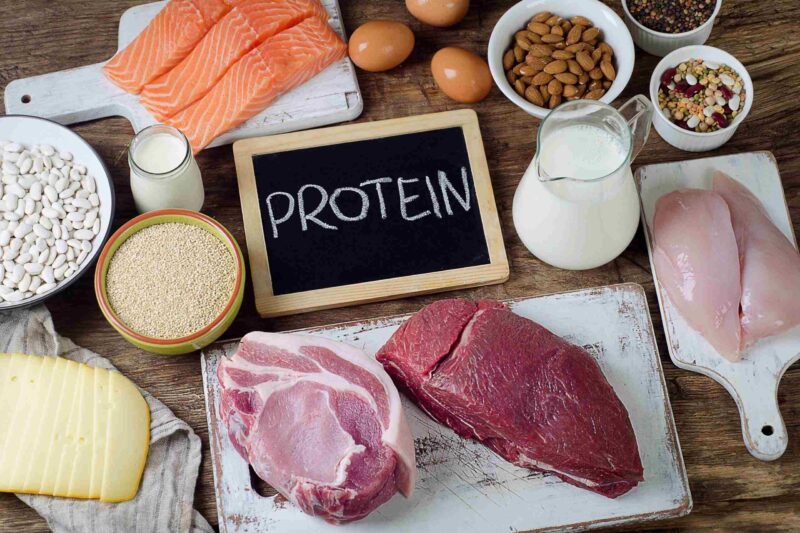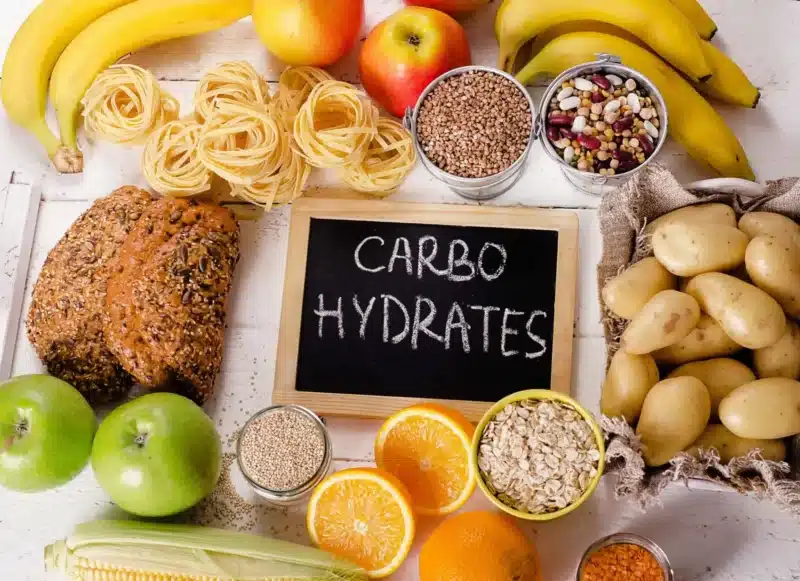Nutrient timing: Are you missing a trick?
Nutrient Timing: Are You Missing a Trick?
How To Optimise Nutrient Timing
(Click On The Reference Numbers In Blue For More Info)
Whether we are trying to gain muscle, lose body fat or improve our athletic performance, we place a great deal of emphasis on what we eat, and rightly so, but tend to place less importance on when we eat. According to the science, it seems that we are ‘missing a trick’.
So important is nutrient timing, that since 2008 the International Society of Sports Nutrition (ISSN) (1) has published regularly a position stand devoted entirely to this subject. This provides an objective and critical review of the current scientific evidence regarding the timing of macronutrients on exercise performance and body composition.
Technically speaking, nutrient timing is the purposeful ingestion of all types of nutrients, including whole foods, fortified foods, and dietary supplements, at various times throughout the day to optimise the adaptive response to acute and chronic exercise. These include muscle strength and power, body composition, substrate utilisation, and physical performance, etc.
The ISSN Position stand focuses on the timing of two macronutrients: carbohydrate and protein. Currently, there is little research examining the specific timing of fat intake. However, as science continues to explore the manipulation of fat and carbohydrate intake, such as the ‘train low, perform high’ approach, future recommendations may address the timing of fat intake.

Nutrient Timing: Protein Intake
Before we look at the timing of our protein intake, we need to ensure that we consume the recommended total daily intake of protein.
For building and maintaining muscle mass, an overall daily protein intake in the range of 1.4–2.0 grams of protein per kilogram of body weight per day (g/kg/d) is recommended. So, for example, if you weigh 100kg you will need to consume 140-200 grams of protein per day. Ideally, this should be broken down into doses 0.25-0.40 grams of a high-quality protein per kg of body weight, or an absolute dose of 20–40 grams evenly distributed, every 3–4 hours across the day.
This is because consuming 20–40 grams of high-quality protein every 3 to 4 hours has been shown to be the most effective approach to optimising muscle protein synthesis in comparison to other dietary patterns, and is associated with improved body composition and performance outcomes.
Ideally, each protein dose should contain 700–3000 mg of leucine and/or a higher relative leucine content, in addition to a balanced array of the essential amino acids (EAAs).
Leucine is particularly important for muscle protein synthesis as provides the signal to switch from a catabolic state, in which muscle tissue is being broken down, to an anabolic state in which it begins to rebuild. The quicker your body receives this signal after training, the sooner it switches from breaking muscle down to building and repairing it to ensure a full and speedy recovery.
To learn more, just click here:
Pre or Post Exercise: Which is Better?
Consuming high quality protein in the time immediately after and up to 2 hours post exercise is generally accepted to provide a significant increase in muscle protein synthesis. That said, the optimal time period during which to consume protein is likely a matter of individual tolerance, since benefits are achieved with pre – or post-workout consumption.
Fast and Slow Acting Proteins: The Benefits of Time Release
The Position stand highlights not only the importance of consuming high-quality protein, i.e., protein sources that contain all of the essential amino acids in good quantities, but also fast and slow acting sources. Specifically, it states that rapidly digested proteins, e.g., whey protein, that contain high proportions of essential amino acids (EAAs) and adequate leucine, are most effective in stimulating muscle protein synthesis. The faster digestion of these forms of protein allows the amino acids to enter the muscles more quickly to enhance growth and repair.
In addition, the Position stand also recommends that casein protein, a slow release form of high quality protein, is consumed prior to going bed, as this can increase muscle protein synthesis and metabolic rate throughout the night.
It is important to note that micellar casein protein isn’t just for consumption at night; with its slow release of critical nutrients, it is ideal for consumption at breakfast, bedtime and any situation that involves short-term fasting.
For example, it is recommended that we consume high quality protein every 3-4 hours across the day to maximise muscle protein synthesis (1); however, this is often difficult due to the demands of modern living. You may have your breakfast at 6am and then be unable to consume the requisite amount of protein until 12 pm. This is a full six hours of fasting. In these situations, micellar casein protein can provide you with that gradual supply of essential amino acids and other important nutrients.
Food or Supplements?
The Position stand states that athletes should consider focusing on whole food sources of protein that contain all of the EAAs. It further states while it is possible for physically active individuals to obtain their daily protein requirements through the consumption of whole foods, supplementation is a practical way of ensuring intake of adequate protein quality and quantity, while minimising caloric intake, particularly for athletes who typically complete high volumes of training.

Nutrient Timing: Carbohydrate: Do We Really Need It?
Now we turn our attention to carbohydrate. We live in time when carbohydrate is perceived by some to be an unhealthy and perhaps even an unnecessary nutrient that causes fat gain and is related to metabolic disease. While the high consumption of highly processed carbohydrates can be problematic, it is important to understand that not all carbohydrates are created equal and that moderate to high intensity (i.e., 65–80% VO2max) endurance activities rely extensively upon carbohydrate as a fuel source. Less well acknowledged is that resistance-based workouts (e.g., three to four sets using ~ 6–20 repetition maximum loads) also rely extensively upon carbohydrate as a fuel source.
For example, performing just six sets of 12 rep max leg extensions exercise has been shown to reduce glycogen stores in the vastus lateralis (one of quadriceps muscle on the front of thigh) by 39%. As glycogen levels decline, our ability to maintain exercise intensity and work output also decreases while rates of tissue breakdown increase. Consequently, the body’s stores of carbohydrate in the form of glycogen contained in the liver and skeletal muscles are vitally important. The simplest guideline to maximise your body’s glycogen stores is to consume an appropriate amount of carbohydrate relative to the intensity and volume of your training.
Carbohydrate: Are You Getting Enough?
Like protein, before we look at the timing of our carbohydrate intake, we need to ensure that we consume the recommended total daily intake.
To maximise our store of glycogen we should consume a high-carbohydrate diet. This consists of 8–12 grams of carbohydrate per kilogram of body weight per day (g/kg/day) (1). So, for example, if you weigh 100kg you would need to consume 800-1200 grams of carbohydrate per day.
If you need to restore your glycogen stores rapidly and have less than 4 hours of recovery time to do so, you should consider the following strategies:
- Consume 1.2 grams of carbohydrate per kilogram of body weight per hour (g/kg/h). Ideally these should high glycaemic index (> 70) forms of carbohydrate.
- Add caffeine at 3–8 milligrams per kilogram of body weight. Consuming caffeine with carbohydrate can increase the rate of glycogen replenishment, which is particularly important if you have limited time to refuel.
- Combine a carbohydrate intake of 0.8 g/kg/h with protein 0.2–0.4 g/kg/h (1).
Bouts of high intensity exercise (greater than 70% VO2max) lasting 60 minutes or more challenge both our fuel supply and fluid regulation. Therefore, carbohydrate should be consumed at a rate of approximately 30–60 grams per hour in a 6–8% carbohydrate-electrolyte solution at a rate of 170-340 millilitres (6–12 fluid ounces) every 10–15 minutes throughout the entire exercise bout. This particularly important if the exercise sessions are longer than 70 minutes (1).
Maximising glycogen synthesis with less frequent supplementation and less carbohydrate can be achieved with the addition of protein to the carbohydrate supplement. This will also promote protein synthesis and reduce protein degradation. Therefore, having the added benefit of stimulating muscle tissue repair and adaptation. Moreover, recent research suggests that consuming a carbohydrate/protein supplement post exercise will have a more positive influence on subsequent exercise performance than a carbohydrate supplement.
With specific reference to resistance training, consuming carbohydrate throughout a typical resistance training session (e.g., 3–6 sets of 8–12 repetition maximum using multiple exercises targeting all major muscle groups) has been shown to promote normal blood glucose levels and higher glycogen stores.
Consuming carbohydrate solely or in combination with protein during resistance exercise increases muscle glycogen stores, reduces muscle damage, and facilitates greater acute and chronic training adaptations.
Endurance athletes should focus on achieving adequate carbohydrate intake to promote optimal performance; the addition of protein may help to offset muscle damage and promote recovery.
Sometimes it can be difficult to consume the recommended levels of carbohydrate from food sources alone. This is where a carbohydrate supplement such as maltodextrin can make a valuable contribution to your nutrition plan. Maltodextrin is an easy-to-digest complex carbohydrate made from corn, potato, or rice starch, which can provide a rapid supply of energy. It is often contained in sports drinks to allow athletes to refuel and rehydrate simultaneously during exercise, as it is absorbed as rapidly as glucose. It can also provide the extra calories required to increase muscle mass, in addition to various other benefits.
To learn more, just click here:
Pre-Workout: A Valuable Window of Opportunity to Optimise Performance
We have seen how the consumption of carbohydrate and protein before, during and after training can aid performance and adaptations to exercise, but are there any other evidence-based substances that can be consumed prior to or during exercise that will benefit performance?
The short answer is yes. In fact, there are a considerable number. These include, for example, caffeine, sodium bicarbonate, and citrulline malate.

Caffeine
The International Society of Sports Nutrition (ISSN) (2) published a position stand on the caffeine and exercise. This states that supplementation with caffeine prior to exercise has been shown to enhance various aspects of exercise performance. These include muscular endurance, movement velocity and muscular strength, sprinting, jumping, and throwing performance, as well as a wide range of aerobic and anaerobic sport-specific activities. In addition, caffeine supplementation has also been shown to benefit endurance exercise in the heat and at altitude.
Caffeine’s ergogenic effect is not confined to the physical aspects of performance, as it has shown to have a positive effect on cognitive function, including attention and vigilance, and may improve cognitive and physical performance in individuals under conditions of sleep deprivation.
Here is an example of one of the many studies supporting the use of caffeine. It demonstrates the sizeable improvement in performance consuming caffeine prior to exercise can make.
Eight subjects cycled to exhaustion at approximately 80% maximal oxygen uptake (VO2max) 1 hour after ingestion of a placebo or caffeine. The subjects in the caffeine trial cycled significantly longer (96 minutes) in comparison to the placebo trial (76 minutes). The results indicate that caffeine supplementation before exercise decreased the breakdown of muscle glycogen by approximately 55% over the first 15 minutes of exercise. This ‘spared glycogen’ was then available later in the exercise and was associated with a prolonged time to exhaustion (3). In short, caffeine helped the body to use fat as energy source and so spare the muscles’ stores of glucose, allowing them to be used later to extend the exercise time.
Caffeine is one of the ingredients in our Time 4 Pre-Workout Professional.

Citrulline Malate
Citrulline malate is a combination of the non-essential amino acid, citrulline, and another compound called malate, or malic acid, which is found in fruits such as apples and helps to enhance the effects of citrulline. It is often consumed in supplement form, as higher levels have been shown to have beneficial effects on health and exercise performance.
For example, a study by Perez-Guisado and Jakeman (5) found that consuming citrulline malate prior to exercise enhances anaerobic exercise performance in the form of the number of repetitions of bench press to failure, with those subjects supplementing with citrulline malate being able to perform 52% more repetitions in their last set compared to a placebo. Citrulline malate also reduced post-exercise muscle soreness.
Pre-exercise supplementation with citrulline malate has also been shown to benefit aerobic exercise performance. Suzuki and colleagues (6) found that participants supplementing with citrulline reduced the time taken to complete a cycling ergometer time trial. Participants also reported improved subjective feelings of muscle fatigue and concentration immediately after the exercise.
Citrulline Malate is one of the ingredients in our Time 4 Pre-Workout Professional.
To learn more, just click here:
Nutrient Timing: Does Changing Meal Timing Aid Weight Loss?
It is often said that eating at certain times of the day, such as late in the evening, are more likely to lead to weight gain while eating at other times, such as breakfast like a king, lunch like a prince and dinner like a pauper, can promote weight loss.
However, according to the ISSN (1), in non-exercising scenarios, the current evidence suggests that changing the frequency of meals has shown limited impact on weight loss and body composition. These findings concur with a number of studies. For example, Lowe and colleagues (7) conducted a randomised control trial to assess the effectiveness the effect of 16:8-hour time-restricted eating on weight loss. The results showed that such time-restricted eating, in the absence of other interventions, is not more effective in weight loss than eating throughout the day.
That is not to say that eating at certain times does not affect body composition. A number of studies have shown that disturbance to our circadian rhythms can influence our levels of body fat. Circadian rhythms are the 24-hour cycles that are part of the body’s internal clock, which runs in the background to carry out essential functions and processes. One of the most important and well-known circadian rhythms is the sleep-wake cycle. Circadian rhythms dictate multiple processes in the body, including alertness or sleepiness, appetite, and body temperature.
Disruption to our circadian rhythms, by travel, work, or poor sleep, for example, has been shown to result in result in unhealthy blood fat levels, insulin resistance and obesity (8). It appears that this is because changes in circadian rhythms are associated with alterations in feeding behaviour and increased weight gain. Consequently, shift work is associated with increased risk for obesity, diabetes and cardio-vascular diseases as a result of unusual eating time and disruption of circadian rhythm.

Nutrient Timing: In Conclusion….
It is clear that nutrient timing has a considerable impact on how we perform and how our body adapts to exercise. In many situations, the effectiveness of nutrient timing is closely linked to the need for optimal fuelling. Therefore, the importance of adequate energy, carbohydrate, and protein intake must be emphasised to ensure that you are fuelled for optimal performance as well as to maximise potential adaptations to exercise. As we have seen, in addition to these important macronutrients there are a number of other substances that have been shown to benefit performance when consumed prior to exercise. In light of such evidence, is nutrient timing a trick you can afford to miss?
